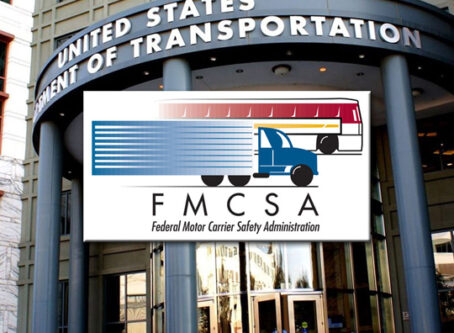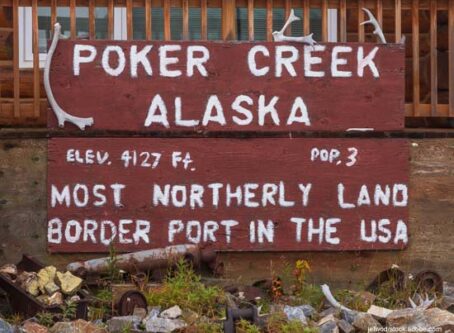Towing reform pursued at multiple statehouses
Unfair towing practices are the topic of legislation under review in multiple statehouses.
Rule changes are touted to establish basic consumer protections from predatory towing for truck drivers and motor carriers.
The Owner-Operator Independent Drivers Association has spent years working with states to establish regulations to protect truck drivers involved in a nonconsensual tow.
OOIDA has pointed out that since truckers are not able to check the price of the towing service, they are at the mercy of the towing company when it comes to cost.
Florida
The Florida Legislature has sent a bill to Gov. Ron DeSantis that addresses concerns about predatory towing practices.
The National Insurance Crime Bureau reported the state is notorious for the practice.
Florida has no statewide maximum rates for towing or storage. State law requires maximum rates to be set by each county. Cities are permitted to set maximum rates, in which case county rates do not apply. Maximum rates set by the Florida Highway Patrol apply when troopers call for a tow, unless the county or city has established rates.
Towing operators are permitted to claim a lien on motor vehicles for specified fees. Statute provides a process for foreclosing on such lien if fees remain unpaid.
State lawmakers unanimously approved a bill to make multiple revisions to towing statute.
HB179 would require counties to establish maximum rates that towers may charge for cleanup and disposal of hazardous and nonhazardous materials incidental to a nonconsensual tow. Cities also would be permitted to enact such rates.
In areas without established maximum rates, rates set by the Florida Highway Patrol would be recognized.
Rates would be required to be posted online. Counties, cities and the Florida Highway Patrol would be mandated to establish a process for investigating and resolving complaints regarding fees charged in excess of such rates.
In addition, towing and storage operators would be mandated to maintain a rate sheet listing all fees related to vehicle recovery, removal or storage. The rate sheet must be posted at the place of business and provided upon request.
A rate sheet also must be made available at the scene of a tow to the owner or operator, if present.
Additionally, a towing operator must allow inspection and release of the vehicle within one hour after the owner, lienholder, insurance company representative or agent provides specified documents during normal business hours at the site where the vehicle is stored.
Florida Trucking Association President Alix Miller said the legislation is “a huge victory” for trucking in the state. In prepared remarks, she said, “HB179 will weed out the predatory towing tactics of bad actors and make the entire industry better and safer.”
Kentucky
In Kentucky, a towing bill is halfway through the statehouse.
The lengthy bill includes a requirement for towing companies to submit their current rate sheets to all local law enforcement agencies in the company’s service area.
SB107 would direct local law enforcement agencies to remove companies that do not comply with requirements from their wrecker log for a period of six months. Repeat offenders would face a one-year removal period.
A provision added to the bill in the House covers retrieval of items from the towed vehicle, including cargo.
The bill is in the Senate Appropriations and Revenue Committee. If approved in the chamber, the amended bill would head back to the House for approval of changes before it could move to the governor’s desk.
Mississippi
Two Mississippi bills that address concerns about nonconsensual towing and charges for commercial vehicles continue to advance at the statehouse.
The legislation would establish a commercial vehicle towing advisory committee within the Commercial Transportation Division of the Mississippi Department of Public Safety.
The panel would establish regulations for towing and recovery service providers. Statewide maximum towing and storage rates for nonconsensual tows also would be set.
Additionally, per-pound billing for nonconsensual towing would be outlawed.
A resolution process also would be set up for truck owners who dispute the amount charged for towing and recovery. The seven-member advisory committee would be responsible for providing towing rates based on certain standards.
Disciplinary action against towing and recovery service providers also would be established.
In addition, law enforcement officers would be forbidden to receive compensation or any other incentive to select a particular towing and recovery service from a tow list.
The House bill, HB1622, has advanced from the chamber to the Senate Highways and Transportation Committee. The Senate version, SB2635, has advanced from the Senate to the House Transportation Committee.
Missouri
One Missouri House bill would permit truck drivers to file a complaint if they believe they were overcharged for a nonconsensual tow. State law currently does not allow this.
Sponsored by Rep. Dave Griffith, R-Jefferson City, HB2214 is intended to help trucking operations of all sizes address the issue.
The bill includes a provision to give greater protection and recourse for third parties. Specifically, a company holding or storing property would be permitted to require the owner to complete documentation showing the property was released to the owner. A requirement also would be included to provide an itemized receipt for the property.
In addition, owners of goods transported in affected trucks would be permitted to file a petition in circuit court asserting that the property was unjustly taken or withheld.
Also included in the bill is a provision to require security for release of a commercial vehicle from possession of a towing company to be 30% of the charges for towing and storage.
OOIDA is among supporters that contend the bill would ensure individuals do not get taken advantage of with burdensome or unreasonable charges for vehicles being towed when there is otherwise no recourse available.
Doug Morris, OOIDA director of state government affairs, said that the bill is commonsense legislation.
It has moved to the House Transportation Committee but has not been scheduled for a hearing.
Virginia
A pair of Virginia bills sent to the governor’s desk are intended to protect the public from predatory towing. Specifically, the legislation would prohibit solicitation of towing.
Sen. Bill Stanley, R-Franklin, said the legislation addresses a specific problem occurring throughout the state.
“You have tow truck companies that are using paramedics, first responders that respond to accidents or disabled vehicles, or trucks on the side of the road,” Stanley testified at a recent hearing. He added that tow companies “talk to these first responders and say if they provide their business card and it results in a tow that (the first responder) will get a kick-back.”
In an effort to halt these actions, SB94 would prohibit tow truck drivers and towing and recovery operators from solicitation or offering tow services in any manner, directly or indirectly, at the scene of any wrecked or disabled vehicle on a highway.
Violators would face up to $500 fines. Repeat offenders would face up to six months behind bars and/or a fine up to $1,000.
The second bill to clear the statehouse, HB1073, would prohibit tow truck drivers from driving by the scene of a wrecked or disabled vehicle and initiating contact with the owner or operator of such vehicle by soliciting or offering towing services, and towing such vehicle, if the affected vehicle has a law-enforcement initiated tow.
At a recent hearing on the bill, Virginia State Police Major Ron Maxey told lawmakers HB1073 is intended to address situations when an officer calls for a tow or a vehicle owner or operator requests a specific tow service, and before the requested tow service arrives, the officer is dispatched to another call that requires him or her to leave the scene.
He added that the rule change “would prevent another vehicle from coming in and taking that vehicle out from underneath the police-requested tow.”
Gov. Glenn Youngkin has an April 8 action deadline. He can sign the bill into law or veto it. If the governor takes no action before the deadline, the legislation would become law without his signature. LL









